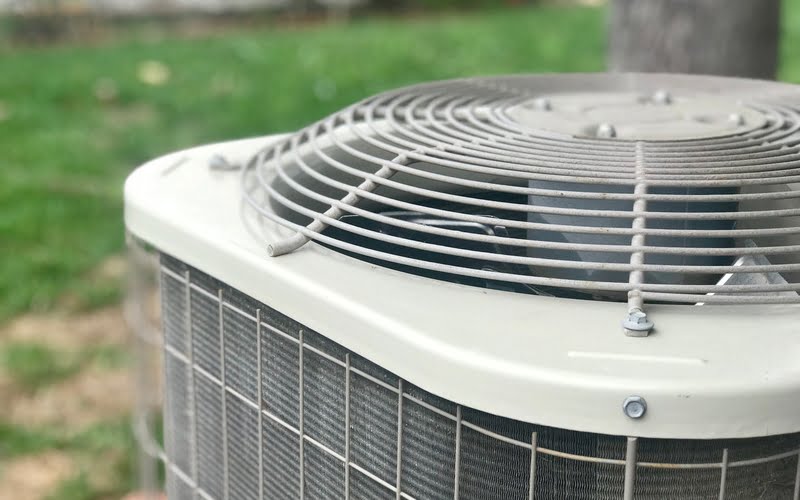Last Updated on May 22, 2025 by Kelvin Nielsen
As a tenant in Idaho, you enjoy a smorgasbord of rights under the state’s landlord-tenant laws. Specifically, under Chapter 3, Title 55 of the Idaho Statutes.
Under the statute, renters automatically obtain certain legal rights when either of the following happens. One, you agree to sign a written lease with the landlord. Two, you make a payment in exchange for rent. Or three, if there is a verbal agreement with the landlord to establish a lease.
Please note that your landlord cannot cause you to waive any of these rights under any circumstances.
With that in mind, the following is a list of rights renters in Idaho enjoy per the state’s landlord-tenant laws.
8 Renters’ Rights in Idaho
Right #1: Live in a Habitable Property
As a renter in Idaho, you reserve the right to live in a property that meets the state’s basic health, safety, and building codes.
The following are some of the issues that can make a unit uninhabitable in Idaho.
- Significant structural damage, such as cracks on walls or foundation, or sagging ceilings.
- No running water.
- Lack of heat during the cold months.
- Malfunctioning plumbing.
- Pest infestations.
Right #2: Have Repairs made within 3 Days after Proper Notification.
Whether you’re experiencing a plumbing issue, a pest problem, or a leaky roof, the landlord must handle the issue promptly. Specifically, the landlord must resolve the issue within 3 days after sending him a proper notification.
If the landlord fails to do so, you may be able to exercise certain legal rights. Including, canceling the rental agreement, making the repairs yourself and deducting the cost from rent, or suing the landlord for costs.
Right #3: A Proper Eviction Process.
Once you establish a lease with a landlord, you agree to abide by certain terms. Such as:
- Keeping the unit clean, sanitary, and habitable.
- Using fixtures, appliances, and facilities properly.
- Not causing damage to the unit, or allowing friends, family, or guests to do so.
- Making small repairs as per the lease, such as replacing burnt-out bulbs.
- Not disturbing the peace and quiet of the neighborhood.
- Abide by all terms of the lease, including paying rent on time, every month.
If you fail to do any of these, the landlord may be able to evict you from your rented premises. That said, the eviction process must be just. The landlord must follow the due process of the law.
The landlord must not try to evict you by doing any of the following illegal things. Such as, shutting down your utilities, locking you out, or removing your personal belongings from the unit.
The only way the landlord can evict you from the property is by obtaining a writ of restitution, which is a court order.
Right #4: Have the security deposit returned after 21 days of moving out.
Most landlords require tenants to pay a security deposit as part of the initial move-in costs.
The deposit is usually between the equivalent of one- or two months’ rent. If, for instance, the monthly rent is, say, $1,500, most landlords will require you to pay a deposit of between $1,500 and $3,000.
Now, after paying the deposit, you automatically obtain certain rights. Including, the following.
- A right to only have legitimate deductions made to the deposit. In Idaho, landlords can only make deductions for unpaid rent, unpaid utilities, or for cleaning costs and damage exceeding normal wear and tear.
- A right to have the deposit, or whatever portion remains, returned within 21 days after moving out.
If the landlord returns it after the 21 days, you could sue for damages. The maximum penalty for late return in Idaho can be up to 3X the deposit, plus court costs.
Right #5: Terminate a periodic lease.
The Idaho landlord-tenant law also grants you the right to terminate a rental agreement early. You must, however, provide the landlord with proper advance notice before moving out.
The amount of notice to serve the landlord will depend on how frequently you pay rent. If paying rent month-to-month, you must serve the landlord with a one-month advance notice. The same notice applies to tenants paying rent yearly.
There are no statutory notice requirements for tenants paying rent weekly or quarterly.
Right #6: Terminate a fixed-term lease early.
You may also be able to break a fixed-term lease before it ends under certain circumstances. In Idaho, early lease termination can only happen for the following legitimate reasons.
- The tenant fulfils the requirements under the early termination clause.
- The tenant starts active military service.
- The unit becomes uninhabitable.
- The tenant is a victim of landlord harassment.
If any of the above happens, you could break the lease legally and without penalty.
Right #7: Advance notice before a rent raise.
Idaho is one of the states that doesn’t have a rent control law in place. And for that reason, landlords can raise rent by whatever amount and do so as frequently as they choose.
Be that as it may, the landlord must provide the tenant with a 30-day advance notice before doing so.
That said, landlords in Idaho must not raise rent for reasons such as retaliation or discrimination based on fair-housing-protected classes.
Right #8: Live without being discriminated against.
Landlords have a legal responsibility to abide by the provisions of the Idaho fair housing laws. The law dictates that landlords treat tenants fairly regardless of certain protected classes.
The classes include: race, color, religion, disability, nationality, familial status, and sex. With that in mind, the following are some of the things that would be illegal for the landlord to do.
- Include discriminatory statements in the rental ad. For example, ‘not suitable for males’ or ‘not ideal for singles.’
- Ask discriminatory screening questions that touch on a protected class. Such as, Are you gay? Are you married? Where are you originally from?
Frequently Asked Questions (FAQs): Renters’ Rights in Idaho
Can a tenant change locks in Idaho?
Idaho doesn’t outrightly prohibit tenants from changing locks. As such, you may be able to do it, unless the lease states otherwise.
Also, landlords can’t unilaterally change locks, as this would be a form of constructive eviction against the tenant.
Do tenants in Idaho have a right to a mandatory grace period?
No, landlords aren’t mandated to provide their tenants with a grace period for payment of rent before charging a late fee.
Can landlords enter without notice in Idaho?
No, before entering your rented premises, Idaho landlords must provide tenants with a “reasonable” advance notice. This is typically at least 24 hours.
In addition to the advance notice requirement, the landlord must also have a legitimate reason for entry. For instance, inspection, maintenance, repairs, or emergencies. They cannot just enter your rented premises because they feel like it or simply want to say “hi”.
Is there a limit on how much a landlord can charge as a security deposit?
No, there is no limit. Landlords can charge as much or as little as they like. This is because Idaho doesn’t impose any limit on how much landlords can charge.
What is a 30-Day Eviction Notice in Idaho?
This is a notice that landlords serve to terminate the lease of a tenant who doesn’t have a lease. The notice gives the tenant up to 30 days to leave on their own or else risk getting a lawsuit filed against them.
Can tenants withhold rent for repairs in Idaho?
Not at all! Withholding rent isn’t one of the legal rights tenants have under Idaho law when it comes to unaddressed repairs.
If the landlord fails to respond to your written notice within three days, the following are the legal options you could take.
- Sue the landlord for any resulting damages.
- Obtain a court order to force the landlord to make the repairs.
- Cancel the rental agreement without penalty.
- Make repairs yourself and then deduct the cost from future rent payments.
Conclusion
There you have it. The rights renters have in Idaho once they establish a lease with the landlord. Please note that the landlord cannot make you waive them either through the lease or otherwise.
Sources: Idaho Statutes Title 55 Chapter 3, Id. Code § 6-320(a) (2022), Id. Code § 6-320(d) (2022)
Disclosure: The content herein isn’t a substitute for advice from a professional attorney. It’s only meant to serve educational purposes. If you have a specific question, kindly seek expert attorney services.

Hi, I’m Kelvin Nielsen, an experienced landlord and accomplished real estate lawyer. My focus is on answering your questions about renting in the hopes of making your life as a renter or a landlord a bit easier.







